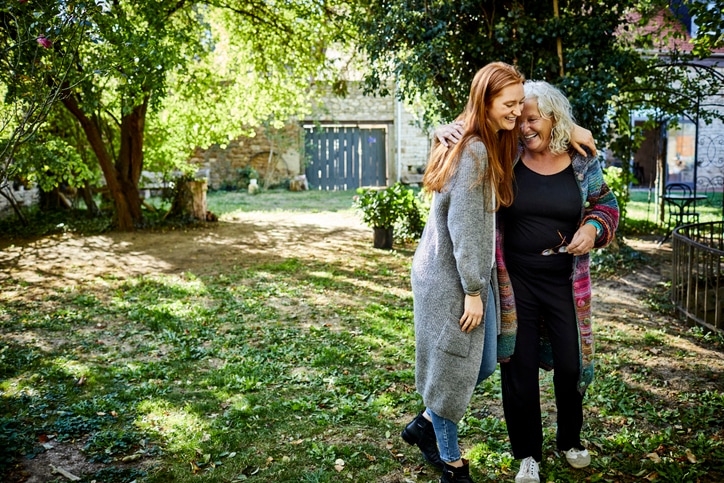Just after we married, my husband and I started couples therapy. We left work early once a week to meet at the therapist’s office and spend an hour talking about our relationship. We weren’t unhappy — in fact, we were still basking in the glow of the “honeymoon period.” For us, couples counseling was an opportunity to understand each other better, to hash things out, and to get on the same page before moving forward with the next phase of our lives.
Over the course of a few months, and with the help of our lovely therapist, we each learned more about our histories — individually and together. We always left feeling closer, more in love, and even more confident that our union would make it through whatever life throws at us.
We might have been unusual — couples therapy is commonly perceived as a last-ditch effort before divorce, a sign that a relationship is really on the rocks. However, according to Suzanne Bartholomew, a clinical social worker and therapist near Austin, TX, more and more people are starting to use it as a tool to build a stronger, healthier relationship with their significant other before trouble arrives.
“Every couple is going to have miscommunication, resentment, or hurt feelings,” says Bartholomew. Figuring out a way to deal with these issues while they’re still small — or before they even occur — means they won’t blow up into bigger problems, Bartholomew says. And it’s never too early to start.
Stop Making S*&%^# Up – And Other Useful Tools
Maybe you hate it when your partner gets up early to do yard work because you think it’s their way of telling you you’re not helping out enough. Or maybe you’re the one in the yard, wondering why your spouse is sleeping the day away when they could be spending time with you. Maybe you feel like you’re always the one who has to organize your date nights – you know, making the reservations, lining up child care for the kiddo, et cetera. Or maybe you’re the one who wants to help with picking a restaurant and finding a babysitter, but you feel like your partner doesn’t trust you to “do it right.”
[RELATED: “How to Rekindle a Relationship: The Benefits of Date Nights”]
We often make assumptions about our partners based on our past experiences, but that doesn’t mean we’re right about our partner’s truth or intention. According to Bartholomew, this happens frequently and usually with minimal awareness. Through the therapy sessions — and with the guidance and support of the therapist — it becomes easier to voice these assumptions and correct them. You may say, “When you sleep in, I feel hurt and it seems like you don’t want to spend time with me.” And then your partner might suggest that you spend the morning in bed together, and put the yard work off until the afternoon.
“Recognizing how readily we make up stories to explain our partner’s behavior is huge,” says Bartholomew. “And when we acknowledge how often we respond to our own made-up stories, rather than our partner’s actual behavior, we are open to the resolution of feelings that may have developed into resentment.”
Showing Up Really Is Half the Battle
Sometimes, the best thing you can do for your partner is just to show up. The couples whom Bartholomew sees report that setting aside time together for the sole purpose of maintaining a happy relationship actually brings them closer together. “The act of just showing up reinforces the idea that the relationship is important and worthy of time, effort, and attention,” says Bartholomew.
“If you’re in therapy,” she continues, “you’re already acknowledging that relationships — all relationships — take work. This honesty about the reality that relationships are not always easy gives couples a leg up and confidence to address the challenges that come with sharing your life with someone.”
Couples who show up for therapy recognize that making relationships work takes effort and commitment; commitment to the cost, time, effort, and sometimes uncomfortable nature of counseling. And it’s precisely this willingness to “put in work” that can be so valuable and rewarding, as it reinforces each person’s commitment to their partner and their shared future.
Once You Get Started, You May Not Want to Stop
Bartholomew recalls her surprise early in her career when couples who had started therapy in a crisis continued to come week after week, even after things stabilized. When she asked if they wanted to end their sessions, these happy couples responded with a strong desire to continue. It became clear that the honesty and regular check-in of therapy had become a key element to their success.
One client explained that attending therapy sessions with her husband helped her realize that her happiness was as important to him as his was to her. When they did finally terminate therapy, that couple continued to treat their Monday at 4 p.m. block as sacred time, and replaced their weekly therapy session with ballroom dancing lessons.
Book the Sitter: It’s Therapy Time!
We’re busy people. We’ve got young kids, jobs, laundry, lunches to pack, friends to see, and exercise to think about but never do. Spending time together, while alone and awake, is — let’s face it — a luxury.
[RELATED: “10 Ways Parents Can Find Alone Time“]
But, if I had to choose between a romantic dinner or an hour of couples therapy, I’d choose the therapist’s couch every time. Not because I’m not happy in my marriage, but because I want this love-lit glow to last forever.






